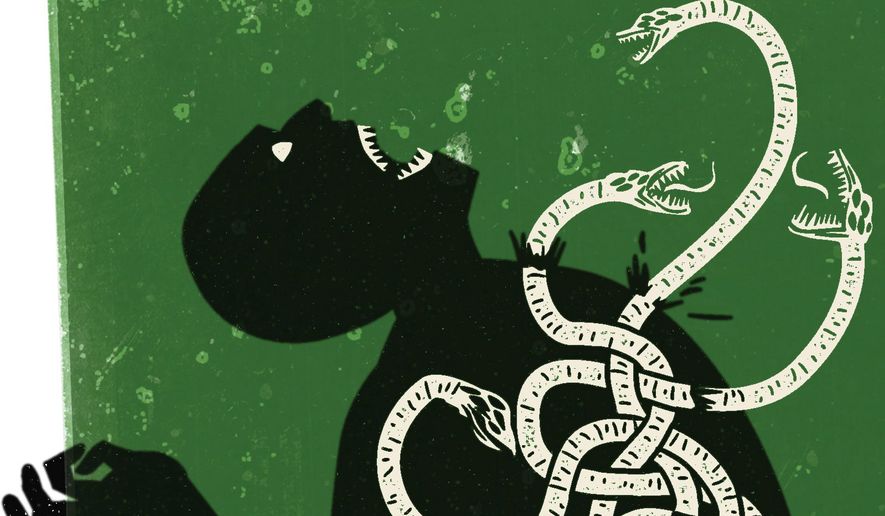 Afghanistan has a foreign military presence that represents an existential threat to the Taliban — an organization that purports to guard the country against all foreign influence. That threat is not the American-led NATO coalition. The Islamic State (ISIS) is a transnational organization with the objective of making Afghanistan one more province (their word is emirate) in a worldwide caliphate.
Afghanistan has a foreign military presence that represents an existential threat to the Taliban — an organization that purports to guard the country against all foreign influence. That threat is not the American-led NATO coalition. The Islamic State (ISIS) is a transnational organization with the objective of making Afghanistan one more province (their word is emirate) in a worldwide caliphate.
That imperial vision has the same plan to subordinate Afghanistan to its imperial aspirations as did Alexander, Genghis Khan, the British Empire and the old Soviet Union. That part of the Taliban which is currently negotiating with the United States for an eventual U.S.-NATO withdrawal fails to officially recognize that the real foreign force that is threatening to take over the country remains virtually ignored in the talks. That elephant in the room should become a key part of any final agreement.
The Taliban leadership isn’t stupid, but it is badly mistaken if it thinks that — absent U.S.-NATO presence — it will be free to march into Kabul as it did in 1996. ISIS aside, the political landscape has undergone a tectonic shift. The Kabul government may suffer from corruption and rampant inefficiency, but it represents the majority of Afghans who, though they may consider themselves to be good Muslims, see a secularized form of governance as the way of the future. The Taliban now represent a distinct minority of citizens who prefer to live in the 14th century; but absent the Americans, they will face an internal enemy determined to march smartly back to the Islam of the 8th century.
Taliban leaders undoubtedly also realize that they lead a fragile coalition that has as its unifying theme the ejection of the U.S.-NATO coalition and the spoils that would be gained by control of Kabul. Under the shaky Taliban umbrella, there is a devil’s mix of conflicting interests. The criminal cartel called the Haqqani Network is a “for profit” enterprise that will view any peace as bad for business. The same holds true for the loose coalition of drug lords and roadside bomb (IED) makers in the northwest area of the country that I am most familiar with. Wrapping themselves in the Taliban cloak gives a veneer of legitimacy to some very un-Islamic activities. Then, there are the true believers in unending holy war. As soon as the ink is dry on any peace agreement, these eternal jihadists will make common cause with ISIS and wage civil war against the Taliban central leaders considered to be apostates.
Worse for the Taliban leadership is their utter failure to effectively govern in the areas that they currently control. Although they portray themselves as pure students of Islam, once their relatively uneducated local leaders gain control, they soon find a truism that all Muslim leaders exercising governance have discovered over the centuries. In the words of John Lehman: “Power corrupts, and absolute power is really neat.” In other words, local Taliban leaders will become the power structure that the young Turks led by ISIS will be out to destroy. The Taliban will find itself tarred with the same brush of corruption as the Kabul government. To date, the Taliban has been able to blame the baleful influence of the U.S.-NATO war machine for their failure to govern effectively. Without the Americans to kick around anymore, the Taliban leadership will find itself short on excuses.
No comments:
Post a Comment